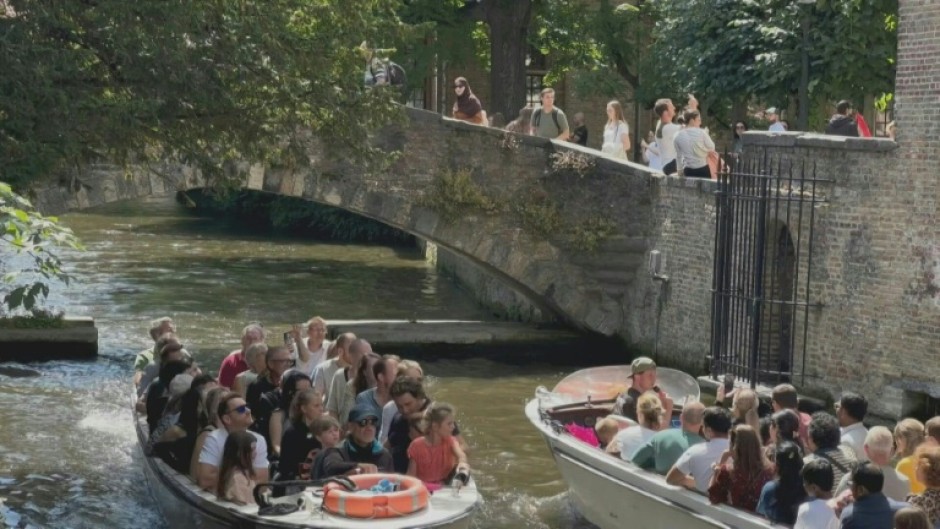BRUGES - Inhabitants of Belgium's cobblestone-and-canal city of Bruges are clear: summertime tourism has hit capacity.
"It's really reached a red line now," says one, 55-year-old architect Arnout Goegebuer, as he sits inside a cafe, peering out a window across a packed outside terrace.
"We don't need more tourists anymore, it's enough -- maybe a little bit less" is needed, he says.
It's a sentiment reiterated by other residents of the western city, population 119,000, which each year hosts eight million visitors -- most of them concentrated in the summer months, and most of them on day trips.
Residents are not against tourism, which brings money and prestige and provides jobs.
But they say it needs to be balanced, to stop the city turning into a Disneyfied open-air museum.
With Bruges crowds back to pre-Covid levels, including from cruise ships docking in nearby Zeebrugge port and disgorging passengers who spend just a few hours, "there's a lot of trouble" for locals, says Kurt Van Der Pieter, a 62-year-old retiree who lived his whole life in the city.
"People of Bruges say it's too much, it's too much -- very too much some days," he says.
The situation is not unique to Bruges. Europe's other top historical canal cities of Venice and Amsterdam have both taken steps to bar cruise ships calling.
Venice received a wake-up call in July when UNESCO recommended the city be put on its endangered list because of over-tourism and other problems.
An August 2022 ranking published by an Airbnb competitor called Holidu put Venice, Bruges and the Greek island of Rhodes in equal second place in its list of the most overcrowded European destinations based on the number of tourists versus inhabitants.
The Croatian walled city of Dubrovnik -- famed as the backdrop for much of The Game of Thrones fantasy TV series -- came first on the list.
Bruges's tourist authority, Visit Bruges, disputes Holidu's ranking and says its own figures, based on usage of mobile devices while in Bruges, show that daily there are 131 visitors per 100 inhabitants.
"Bruges is often referred to as a mass tourism destination, but it isn't," a spokeswoman, Ann Plovie, tells AFP.
"This is like a bit (of a) misconception that the city is overcrowded. Indeed, I can't deny that there are many tourists, but you should come on different periods and then you would see also the difference," adds another spokeswoman, Anne De Meerleer.
In 2019, Bruges implemented a five-year strategy to boost overnight stays, spread the tourist numbers around geographically and over each year, and to lure visitors more interested in cultural and gastronomic deep-dives than selfies and waffles.

